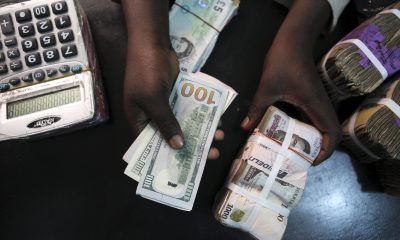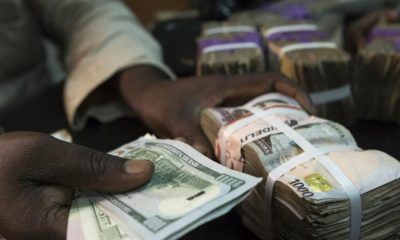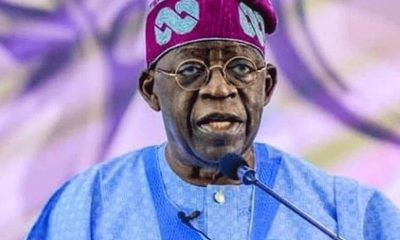- Experts say, interest rate cannot decline on high inflation rate
By Chioma Obinagwam
The recent decision by the Monetary Policy Committee (MPC), the highest policy making committee of the Central Bank Nigeria (CBN), to retain Monetary Policy Rate(MPR) at 14 per cent at the last MPC meeting held on March 20 and 21, 2017 amidst sundry expectations of a lowered interest rate, has also been acknowledged by some economists.
The Head, Economic Research and Policy Management at the Securities and Exchange Commission(SEC) of Nigeria, Dr. Afolabi olowookere said that though a cut in interest rate is desirable, it would not have been possible for the CBN to reduce MPR, considering the current inflation rate at 17.78 per cent.
Prior to the meeting, there were pockets of arguments over a perceived reduction in the rate, owing to a slight moderation in the inflation rate witnessed in February in contrast to what was recorded in January of the period under review, where it declined from 18.72 per cent in former to 17.78 per cent in the later.
MPR simply refers to the rate at which banks can borrow from the central bank and it is how the CBN influences the rate at which banks can lend to companies as well as other customers; often referred to as interest rate.
This implies that the higher the rate, the less favourable terms you will get for loans from banks
Inflation Rate, on the other hand, refers to the rate at which prices increase over time, resulting in a fall in the purchasing value of money.
Olowookere further disclosed that the CBN, which is charged with two major mandates- targeting Inflation rate as well as Exchange rate stability, strives to fulfill these mandates even if it has to retain, increase or lower the MPR.
The economist also argued that a high interest rate is not entirely injurious to the economy as it attracts foreign Inflows.
A typical example is the recent Euro Bond issued by the Federal Government for offseting part of the 2017 budget deficit, which was over-subscribed because of it’s high and attractive coupon compared to it’s peers in the region.
“If you want foreigners to bring in money, then you have to retain a high interest rate.” he said.
Olowookere further stated that achieving a drop in interest rate in the country is largely dependent on a decline in the inflation rate.
To tackle high inflation rate, he said, it is pertinent to study the kind of inflation in the country.
He noted that Nigeria’s inflation is structural, borne from infrastructural deficits.
Managing Director of Cowry Asset Management, Johnson Chukwu who seem to share similar views with Dr. Olowookere; according to him, “the high inflation rate we have in the country is not caused by the MPR but the structural defects of the economy. As it stands today, the private sector in Nigeria is at the tros of death. We should have a model that’ll allow the private sector to thrive.”
While commending the CBN for injecting funds in the financial system aimed to cushion the pressure of foreign exchange on the local currency(naira), Olowookere noted that, if done consistently would check the galloping inflation in the short term.
“If the CBN can sustain the interventionist policy for about three months, then we might likely see a reduction in the interest rate, ” he noted.
The pundit, nonetheless, stressed the need for the Federal Government to concentrate on building infrastructure, which is critical for the growth of the real sector, if they must achieve controlled inflation in the medium to long term.
Basically, a reduction in interest rate without a concomitant decline in inflation rate would ordinarily assume a cosmetic stance and the impact would not be felt by the people.
“Even if the CBN brings down interest rate, you can’t see it, the impact won’t be felt until inflation rate comes down. What happened between January and February is a slight reduction. When inflation rate drops to about 15 per cent, they may be a possibility of a reduced interest rate,” the economist highlighted.
Corroborating, the Director, Research Department, CBN, Uwatt Uwatt, during one of the bank’s workshops organised for journalists, attest that changes in the MPR is expected to reflect in the money market, foreign exchange market, expectations, output and inflation.
In other words, reducing interest rates without addressing the fundamental issues reflected in the macro-economic indicators.
Buttressing, Director Monetary Policy Department of the bank, Moses Tule, said: “Even if MPR is reduced to two per cent, it will impossible for Deposit Money Banks(DMBs) to lend at five per cent because there are other factors that affect the rate, security, power, water, cost of funds etc.”
Ultimately, Olowookere noted that in trying to address the problem of the current haemorrhaging macro-economic indicators in the country, Nigerians should not fail to recognize that the major goal of the CBN everywhere in the world is to target inflation and in some places, maintain Exchange rate stability.
In essence, the issue of growth still lies within the fiscal and trade policy(the Federal Government).
“In Economic Theory, economic variables only have short term impacts. While the CBN tries to use the monetary policy to tackle the issue of inflation rate and exchange rate stability in the short term, in the medium to long term, you must have those infrastructure in place,” he emphasised.
Chairman of Constance Shareholders Association, Shehu Mikhail, who holds a contrary view, stated that current interest rate regime would be difficult for people to borrow, hence, would make it quite herculean for the economy to move out of recession.
“Where you have a policy where it attracts high interest rate, people will be redundant. Those policies cannot easily transform the economy out of recession.” he said.
Nevertheless, he was quick to add that there is need for some sort of relief in the policies rolled out in the country, which should be such that would encourage investments.
“The financial sector is trying hard to sustain their services. This is the time where there should be relief in the area of taxation, so that investors can come and invest. The Western world like the United States, etc are having their own challenges and they are looking for better places to invest,” he continued.
Having established that a lowered interest rate is highly desirable for economic growth, factors determining interest rate development in the country cuts across policy and non-policy variables, therefore, management approach needs to be multi-faceted, involving the CBN, Fiscal authorities and the banks.
While the CBN tackles the issue of high inflation and exchange rate stability, the Federal Government should largely complement these efforts by providing infrastructure critical for the growth and development of the economy.














 Entertainment6 days ago
Entertainment6 days ago
 Health1 week ago
Health1 week ago
 Health4 days ago
Health4 days ago
 Football1 week ago
Football1 week ago
 Football1 week ago
Football1 week ago
 Crime5 days ago
Crime5 days ago
 Education6 days ago
Education6 days ago
 Health6 days ago
Health6 days ago
